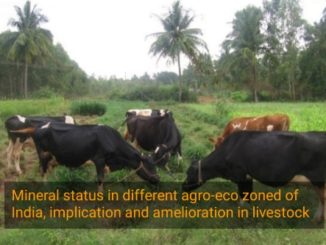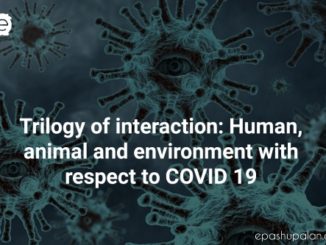Introduction
In the wake of the valid argument that dictates the morality being a welfare entity considered for man, whereas the animals being the same beings except not protesting for the rights for themselves, the mankind or some men take the onus necessarily to become a voice for them.
Welfare as defined ‘the state of doing well especially in respect to good fortune, happiness, well-being, or prosperity’, may be just literary for the context but for the living ones the dimensions do extend in multiple directions for the good which is not optional.
Same the ethics from its basic definition- ‘the discipline dealing with what is good and bad and with moral duty and obligation’ to more extended generalized empathy for the care and nourishment of animals in domestic as well as wild state is to be discussed.
Speciesism, giving preference to the interests of our own species merely because of they are of our species.
Philosophical discussions
According to Aristotle, there is a natural hierarchy of living beings. The different levels are determined by the abilities present in the beings due to their natures.
St. Thomas Aquinas argues that since only beings that are rational are capable of determining their actions, they are the only beings towards which we should extend concern “for their own sakes”. Aquinas believes that if a being cannot direct its own actions then others must do so.
Immanuel Kant developed a highly influential moral theory according to which autonomy is a necessary property to be the kind of being whose interests are to count direclty in the moral assessment of actions. The important part of his conception for the moral status of animals is his reliance on the notion of willing. While both animals and human beings have desires that can compel them to action, only human beings are capable of standing back from their desires and choosing which course of action to take. This ability is manifested by our wills. Since animals lack this ability, they lack a will, and therefore are not autonomous. According to Kant, the only thing with any intrinsic value is a good will. Since animals have no wills at all, they cannot have good wills; they therefore do not have any intrinsic value.
Rene Descartes, who argues that animals are automata that might act as if they are conscious, but really are not so.
Such theories have been based on the beliefs by individual, beginning from Aristotle’s hierarchical system, Aquinas’s rationality for actions, Kant’s need of willingness for developing values to Descartes’ conception of level of conscience.
The existence of conscience in animals differ of those of us, where the ability of reasoning is not acute and works simply for the basic life functions- nutritional intake, response to the environment for safety, reproduction but also development of affection towards another individual of same or different species including man. We can never know the thoughts of an animal towards its environment as it is not manifested in a comprehensive language but body language works as a script for such observations, e.g. the affection of a pet like dog towards its owner and of a cow.
Discussions on Morality
The arguement: ‘Only rational, autonomous, and self-conscious beings deserve full and equal moral status; since only human beings are rational, autonomous, and self-conscious, it follows that only human beings deserve full and equal moral status. Once again, it is not claimed that we can do whatever we like to animals; rather, the fact that animals are sentient gives us reason to avoid causing them unnecessary pain and suffering. However, when the interests of animals and human beings conflict we are required to give greater weight to the interests of human beings. This also has been used to justify such practices as experimentation on animals, raising animals for food, and using animals in such places as zoos and rodeos.’
In this argument of rationality where humans would easily have an upper-hand, does not clearly give command to humans to force the animals in whatever the condition, man would like them to be in or to be used. A further implication would also suggest a bigger and caring initiative from man towards animals if being more rationale.
The arguement: ‘Another reason for giving stronger preference to the interests of human beings is that only human beings can act morally. This is considered to be important because beings that can act morally are required to sacrifice their interests for the sake of others.’
Such argument would for sure fall into controversy where the morality is used for the biased behaviour, in fact, one with higher morality would bring everyone on the same table. Animals do sacrifice for other individuals, a mother wildebeest fending off the predator to protect the young one and a dog standing in middle of its owner and a crocodile attacking from behind.
Peter Singer has been very influential in the debate concerning animals and ethics. The publication of his Animal Liberation marked the beginning of a growing and increasingly powerful movement in both the United States and Europe.
Singer attacks the views of those who wish to give the interests of animals less weight than the interests of human beings. He argues that if we attempt to extend such unequal consideration to the interests of animals, we will be forced to give unequal consideration to the interests of different human beings.
Singer’s version of the Argument from Marginal Cases discusses some property that some humans have but some may lack and animals may have. Thus rejecting the claim that all and only human beings deserve a full and equal moral status.
Interpretation
Animals that are raised for food in factory farms live lives that are full of unimaginable pain and suffering. Although human beings do satisfy their interests by eating meat, Singer argues that the interests the animals have in avoiding this unimaginable pain and suffering is greater than the interests we have in eating food that tastes good. If we are to apply the Principle of Equal Consideration of Interests, we will be forced to cease raising animals in factory farms for food. A failure to do so is nothing other than speciesism, or giving preference to the interests of our own species merely because of they are of our species.
Thus a major concern is about the farm animals or food animals as they are being reared for a specific, predetermined cause i.e. killing or used as machine for milk production. The extension of moral sphere would include the beast of burden to experimental animals alike.
References: Peter Singer,Animal Liberation, Regan and Singer, 1989: 4-5, Kant, 1983, 1956.






Super artical sir
Nice sir